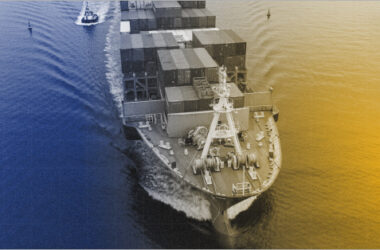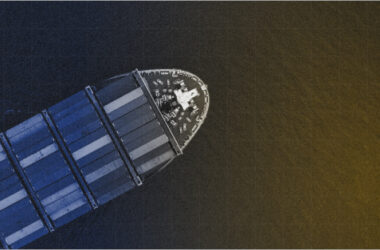Navigating the complexities of trade and transportation requires careful consideration of the risks involved in moving goods across vast distances and through various modes of transportation. In this context, Marine Transit Insurance emerges as a vital safeguard against the uncertainties inherent in maritime shipping. This article serves as a comprehensive guide, looking into the intricacies of Marine Transit Insurance in India.
Marine Transit Insurance: A Brief Overview
Marine Transit Insurance, a crucial component of international trade and commerce, provides coverage for goods transported by sea, air, road, or rail. This specialized form of insurance safeguards against a multitude of risks encountered during transit, including vessel accidents, piracy, natural disasters, theft, and damage caused by improper handling or stowage. Marine Transit Insurance typically offers various types of coverage against different perils.
Depending on the needs of the insured and the nature of the cargo, policies may range from basic coverage for named perils to comprehensive all-risk coverage. Furthermore, Marine Transit Insurance can encompass not only the physical loss or damage to cargo but also liability risks associated with third-party property damage or bodily injury. By providing financial protection against the uncertainties of international transportation, Marine Transit Insurance facilitates smoother trade operations and ensures the resilience of businesses engaged in global commerce.
Different Types of Marine Transit Insurance
Some of the most common types of Marine Transit Insurance include:
- Open transit insurance:This insurance covers all shipments made by a business over a set period of time, usually a year. It is an excellent choice for businesses that ship items frequently.
- Single transit insurance:This kind of insurance covers a particular shipment of goods from one location to another. It is an excellent choice for small businesses that send goods occasionally as well as individuals shipping costly items.
- Goods in transit through third-party carrier cover:This insurance applies to items transported by a third-party carrier, such as a trucking or shipping business. It is critical for companies that use third-party carriers to ship their products.
- Goods in transit through carrier cover:This insurance covers commodities transported by the insured company’s vehicles. It is critical for businesses that operate through their own pool of vehicles.
- Customised transit insurance:This type of insurance is designed to meet the specific needs of a business. It may encompass a wide range of risks, including the kind of items being sent, their value, and the distance they are transported.
What is Covered in Marine Transit Insurance?
Marine Transit Insurance Policies in India typically cover a wide range of risks associated with the transportation of goods by sea, air, road, or rail. Some common coverages provided by Marine Transit Insurance Policies in India include:
- Loss or Damage to Cargo:Marine Transit Insurance protects against physical loss or damage to the insured cargo during transit, including risks such as sinking, collision, fire, theft, accidental damage and water damage.
- Loading and Unloading Risks: This includes protection against damage or loss to cargo during the loading and unloading processes at ports, terminals, or other transit points. This coverage extends to instances of mishandling, improper storage, or accidents that may occur during these operations.
- Packing and Unpacking Protection:This coverage encompasses compensation for damage or loss incurred during the packing and unpacking of goods for shipment. This coverage may be extended to instances of improper packaging leading to damage during transit or mishandling during unpacking upon arrival at the destination.
- Third-Party Liability:Marine Transit Insurance Policies may offer coverage for third-party liability arising from the insured’s negligence, such as damage to third-party property or bodily injury caused by the insured’s cargo during transit.
- Additional Coverages:Depending on the insurer and the specific needs of the insured, Marine Transit Insurance Policies in India may offer additional coverages such as delay in transit, deviation expenses, warehouse-to-warehouse coverage, and inland transit extensions.
It’s essential for businesses to carefully review the terms and conditions of Marine Transit Insurance Policies to ensure they have adequate coverage for their specific shipping requirements and risk exposures. Additionally, insurers may offer customized policies tailored to the unique needs of different industries or types of cargo, providing added flexibility and protection.
What are the Common Exclusions in Marine Transit Insurance Policies in India?
Common exclusions in Marine Insurance Policies in India may include:
1. Unseaworthiness:
Exclusions may apply if the vessel transporting the cargo is deemed unseaworthy at the time of departure, meaning it is not fit for the intended voyage due to inadequate maintenance, equipment, or crew.
2. Inherent Vice:
Exclusions may apply for damage caused by the inherent characteristics or properties of the cargo itself, such as natural deterioration, inherent defects, or inherent vice that could not have been prevented by reasonable care.
3. Insufficient Packaging:
Exclusions may apply if damage occurs due to insufficient or inadequate packaging of the cargo, as Marine Insurance typically expects goods to be properly packaged to withstand the normal rigours of transportation.
4. Delay or Consequential Loss:
Exclusions may apply for losses resulting solely from delay, loss of market, or other consequential damages, as Marine Insurance typically focuses on physical loss or damage to the cargo itself.
5. Acts of War and Terrorism:
Exclusions may apply for losses resulting from acts of war, terrorism, civil unrest, or political disturbances, as these events are often considered uninsurable risks.
6. Nuclear Risks:
Exclusions may apply for losses resulting from nuclear accidents, radioactive contamination, or other nuclear events, as these risks are typically excluded from coverage under Marine Insurance Policies.
7. Fraudulent Acts:
Exclusions may apply if the insured or their representatives engage in fraudulent or dishonest acts, such as making false statements or submitting fraudulent claims.
8. Insolvency or Financial Default:
Exclusions may apply for losses resulting from the insolvency, financial default, or bankruptcy of the insured, the carrier, or other parties involved in the transportation of the cargo.
It’s essential for businesses to carefully review the terms and conditions of Marine Insurance Policies to understand the extent of coverage provided and any exclusions that may apply. Additionally, insurers may offer optional endorsements or additional coverage options to address specific risks or customize coverage to better suit the insured’s needs and risk profile.
Why is Marine Insurance Important for Businesses in India?
Here are some key points outlining the importance of Marine Insurance for businesses in India:
- Risk Mitigation:Marine Insurance helps businesses mitigate the financial risks associated with the transportation of goods by providing coverage against a wide range of perils such as damage, loss, theft, or accidents during transit.
- Protection Against Unforeseen Events:It safeguards businesses against unforeseen events like vessel sinkings, piracy, natural disasters, or political unrest, which could result in significant financial losses if not adequately insured.
- Compliance Requirement:Marine Insurance may be a mandatory requirement imposed by lenders, banks, or trading partners as part of financing agreements or contractual obligations, ensuring compliance with regulatory and contractual requirements.
- Business Continuity:By providing financial protection for goods in transit, Marine Insurance helps ensure business continuity by minimizing disruptions to supply chains and trade operations, even in the event of adverse incidents.
- Enhanced Business Confidence:Having Marine Insurance enhances the confidence of buyers and sellers in the supply chain, fostering stronger business relationships and facilitating smoother trade transactions.
- Competitive Advantage:Businesses that have Marine Insurance demonstrate a commitment to risk management and protecting their assets, which can enhance their competitive advantage in the marketplace and instil confidence among customers and stakeholders.
- Peace of Mind:Ultimately, Marine Insurance provides businesses with peace of mind, knowing that their valuable assets are protected against the uncertainties of international trade and transportation, allowing them to focus on their core operations and growth initiatives.
Frequently Asked Questions
- What is Insurable Interest in Marine Insurance?
Insurable interest in Marine Insurance refers to the financial stake or legal interest an individual or entity holds in the cargo being transported. It can stem from ownership, possession, or contractual obligations related to the cargo. Demonstrating insurable interest is essential for obtaining coverage, as it ensures the insured party has a genuine financial exposure to potential losses during transit. Without it, the insured party lacks legal standing to obtain coverage or receive compensation for losses incurred during cargo transportation.
- Who Needs a Marine Insurance Policy in India?
In India, a Marine Insurance Policy is essential for businesses and individuals involved in the import and export of goods via sea routes. This includes manufacturers, exporters, importers, freight forwarders, shipping companies, and traders.
Additionally, businesses engaged in international trade, such as those dealing with raw materials, finished products, machinery, or consumer goods, can benefit from Marine Insurance. By obtaining this coverage, stakeholders in maritime trade can protect their valuable cargo against risks such as damage, loss, theft, accidents, and natural disasters during transportation. Marine Insurance ensures financial security, mitigates potential losses, and facilitates smoother trade operations in the dynamic landscape of international commerce.
- What Determines the Cost of Marine Insurance?
The cost of Marine Insurance depends on several factors assessing the risk associated with transporting goods. These include cargo value and nature, chosen coverage limits, deductibles, and endorsements. Route, destination, and mode of transportation also influence costs, with riskier options attracting higher premiums. Insured party’s claims history, risk management, and safety compliance may also affect costs. Overall, premiums are tailored to each shipment’s unique risk profile and coverage needs, reflecting potential financial exposure and desired protection against marine perils.







